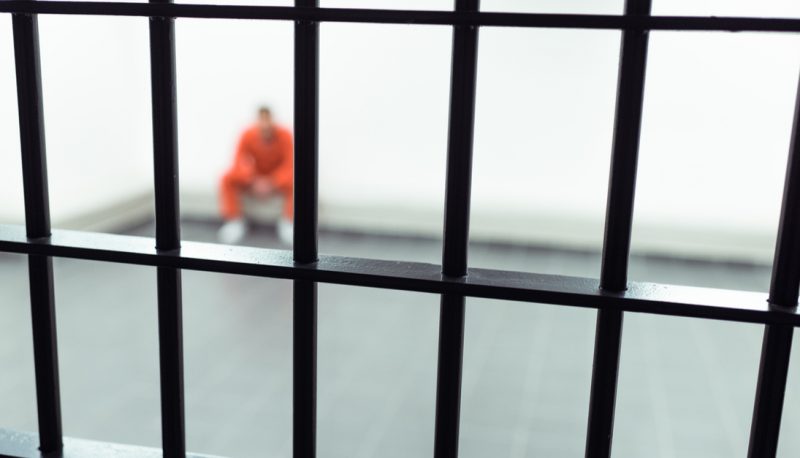“Confirmed Judges, Confirmed Fears” is a blog series documenting the harmful impact of President Trump’s judges on Americans’ rights and liberties. Cases in the series can be found by issue and by judge at this link.
Trump Third Circuit judge Paul Matey wrote a 2-1 ruling affirming the dismissal of a lawsuit for damages against a federal prison guard who ordered inhumane confinement of a prisoner that the Third Circuit had already recognized was cruel and unusual punishment under the Eighth Amendment. The May 2021 decision was in Mammana v Barben.
After a medical assistant filed what turned out to be an unfounded complaint against Anthony Mammana, who was confined in the Allenwood federal corrections center, a guard ordered Mammana placed in the “Yellow Room” and given “Yellow Room treatment.” As the court explained, the Yellow Room is a cold solitary confinement cell “that has extra bright lights and yellow walls that reflect and intensify that light.” A prisoner like Mammana given the “Yellow Room treatment” is “stripped of his standard uniform and forced to wear a ‘see-through thin’ alternative;” he gets no “blankets or sheets” and, in Mammana’s case, no “pillow, washcloths, towels, toothpaste, a toothbrush, and toilet paper;” and “the lights are kept on for twenty-four hours a day.” Mammana was kept in the cold Yellow Room for four days despite requests for medical treatment because he felt ill. The requests were ignored, and guards instead “chided and mocked him all night.”
After completing his sentence, Mammana sued the guards who ordered him to be given the “Yellow Room treatment,” claiming violation of his Eighth Amendment right against cruel and unusual punishment. In an initial decision, the Third Circuit ruled that the “denial of the minimal civilized measure of life’s necessities” through the Yellow Room treatment, including “warmth and sufficient sleep,” was enough to “state a claim” under the Eighth Amendment, and sent the case back to the lower court. That court ruled, however, that Mammana could not sue the federal guards under the Bivens doctrine, a Supreme Court principle that allows people to sue federal officials for depriving them of constitutional rights under some circumstances. Mammana appealed.
All three judges on the appeals court panel agreed that the Supreme Court has significantly limited liability under Bivens, although some such cases are still permitted to hold federal officials accountable for misconduct in violation of the Cnstitution. Matey wrote a 2-1 decision affirming the lower court and ruling that a person like Mammana cannot bring an Eighth Amendment claim for inhumane treatment against a federal prison official. Matey argued that although the Court had allowed Bivens claims against federal guards for “failure to provide adequate medical treatment” and to provide “protection from prisoner violence,” Mammana’s claim concerned a “new context” because it concerned his “mistreatment in the Yellow Room.” Matey also maintained that “special factors” suggest that the court should not “expand” Bivens to apply to this case because Congress’ “omission” of a damages remedy “against federal jailers” in the Prison Litigation Reform Act (PLRA) indicates that Congress “chose not” to extend the remedy for failure to provide medical treatment to “cases involving other types of prisoner mistreatment.”
Judge Patty Shwartz strongly dissented. She explained that this case “does not present a new context” because the Supreme Court has already ruled that federal prison officials can be sued under Bivens for failure to provide constitutionally adequate “medical treatment” and to protect someone from “violence” by other prisoners. These cases are not “different in a meaningful way” from Mammana’s claim of inhumane conditions of confinement, she continued, especially since the Supreme Court itself has recognized, in the context of similar lawsuits against state prison officials, that there is “no significant distinction between claims alleging inadequate medical care” and others claiming “inadequate ‘conditions of confinement.’” In addition, Shwartz went on, decisions by the Third Circuit itself refute the PLRA argument. As the court has previously explained, she wrote, PLRA is designed to govern the “process by which federal prisoners bring Bivens claims,” and the fact that Congress did not include a new cause of action for damages claims by prisoners “cannot rightly be seen as dictating that a Bivens cause of action” for constitutional claims against federal prison officials “should not exist at all.” Particularly since the court had previously ruled that the “Yellow Room treatment” of Mammana violated the Eighth Amendment and since a state prisoner subjected to identical treatment could sue under federal civil rights law, Shwartz concluded, it is unfair and produces clearly “unequal treatment” to rule as Matey did that Mammana cannot bring such a claim and receive the “same constitutional protections.”
Unfortunately, Trump judge Matey’s decision will produce exactly that result for Mammana, and also make it more difficult or impossible to sue other federal prison officials to hold them accountable for inhumane treatment. The case illustrates the importance of promptly confirming Biden nominees in our battle for our courts.

